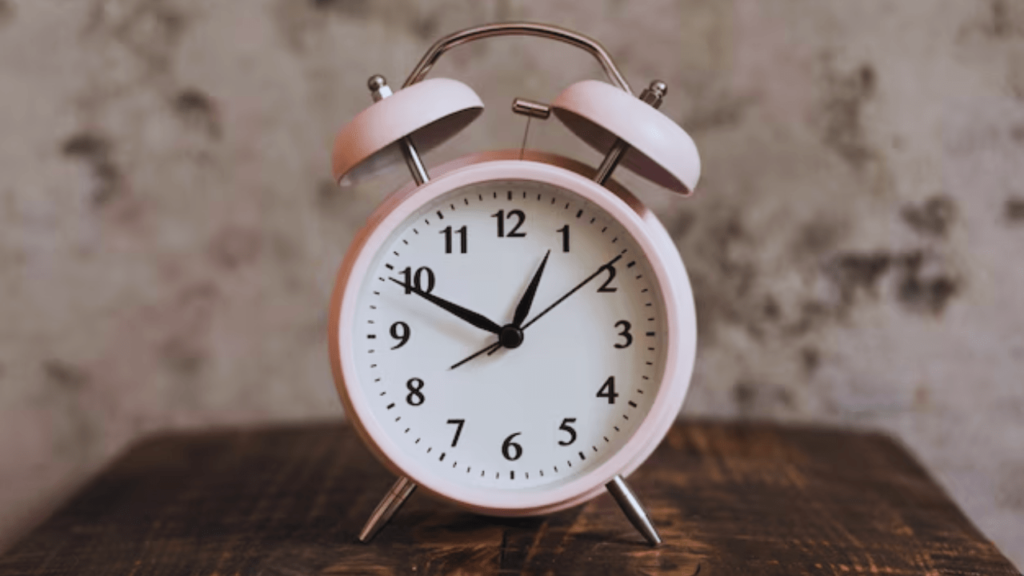The 30-minute sleep trend, popularized by Japanese entrepreneur Daisuke Hori, claims to improve productivity and focus by drastically reducing sleep hours. While Hori and his followers believe in its benefits, experts argue that such practices could have serious health implications.

Sleep is often hailed as the cornerstone of good health, with most adults needing between 7 to 9 hours of rest per night to function optimally. However, a new sleep trend is turning this conventional wisdom on its head. Enter the 30-minute sleep trend, a practice championed by Daisuke Hori, a 40-year-old Japanese entrepreneur, who claims he has trained his body and mind to function on just 30 to 45 minutes of sleep each day for the past 12 years. This approach promises increased productivity and energy levels, but is it really possible? How effective is it? And what do sleep experts have to say about this extreme routine?
Daisuke Hori and His 30-Minute Sleep Routine
Daisuke Hori, from Hyogo prefecture in Japan, is an entrepreneur with a wide range of interests, including music, painting, and mechanical design. Faced with the challenge of balancing these diverse passions, Hori began experimenting with reducing his sleep duration 12 years ago to create more active hours in his day. Over time, he settled on an ultra-short sleep schedule, sleeping only 30 to 45 minutes daily.
Daisuke Hori claims that his method has significantly improved his work efficiency and overall energy levels. “As long as you do sports or drink coffee an hour before eating, you can stave off drowsiness,” Daisuke Hori told the South China Morning Post (SCMP). He believes that high-quality sleep, even in small amounts, can be more effective than longer, uninterrupted sleep sessions.

Testing the Limits: The Reality Show Experiment
To explore Daisuke Hori’s unconventional sleep experiment further, Japan’s Yomiuri TV featured him on a reality show titled “Will You Go With Me?” During the show, Hori slept for just 26 minutes, woke up feeling refreshed, and even managed to go to the gym. According to Daisuke Hori, people in high-focus professions like doctors and firefighters, who often have shorter rest periods, benefit more from high-quality sleep than from long sleep.
The Appeal of Ultra-Short Sleep Schedules
Daisuke Hori has gained quite a following, having taught over 2,100 students to adopt his ultra-short sleep habits. One of his students told Yomiuri TV that she reduced her sleep from eight hours a night to just 90 minutes after undergoing Hori’s training. For people struggling to find enough hours in the day, this method seems appealing—after all, who wouldn’t want more time for hobbies, work, or personal growth?
However, despite its allure, there are significant questions about the safety and sustainability of such a drastic reduction in sleep. Is it truly possible to function normally, let alone thrive, on such limited rest?
What Does Science Say About Sleep Duration?
Experts in sleep science caution against following such extreme sleep regimens. They emphasize that the body needs longer periods of uninterrupted sleep to complete a full sleep cycle. These cycles include light sleep, deep sleep, and Rapid Eye Movement (REM) sleep, which are crucial for brain restoration, memory consolidation, and physical recovery.
Fragmenting sleep can prevent the body from reaching these deep stages, leading to cognitive impairments, mood disorders, decreased alertness, and an increased risk of chronic conditions such as heart disease and diabetes.
A study published in the Journal of the American Geriatrics Society also found that individuals who either undersleep or oversleep tend to have cognitive functions akin to someone two years older than their actual age. Inadequate sleep, whether in duration or quality, can affect mental sharpness, mood stability, and overall health.
The Health Risks of Sleep Deprivation
Sleep deprivation is linked to a host of health problems, both mental and physical. Here are some of the key risks associated with insufficient sleep:
- Cognitive Impairments: Sleep plays a critical role in processing and storing information. Without enough rest, cognitive functions like memory, attention, and decision-making are compromised.
- Mental Health Issues: Chronic sleep deprivation is associated with mood disorders such as depression and anxiety. The brain’s ability to manage emotions and stress is reduced, making daily challenges harder to navigate.
- Physical Health Risks: Insufficient sleep weakens the immune system, making one more susceptible to infections and illnesses. It also disrupts hormones that regulate hunger, contributing to weight gain and an increased risk of conditions like obesity, hypertension, and diabetes.
- Productivity and Quality of Life: Lack of adequate sleep can impact productivity at work or school and increase the risk of accidents due to impaired alertness.
The Importance of Quality Sleep
While Daisuke Hori’s approach emphasizes the importance of sleep quality over quantity, experts argue that quality should not come at the expense of adequate duration. Quality sleep means reaching the deeper stages of sleep, which are essential for physical recovery, memory consolidation, and overall health.
To achieve high-quality sleep, experts recommend the following:
- Establish a Regular Bedtime Routine: The body’s internal clock is regulated when bed and wake times are the same each day.
- Create a Sleep-Friendly Environment: Keep the bedroom dark, quiet, and cool. Use comfortable bedding and limit noise disruptions.
- Avoid Screens Before Bed: The blue light from screens can interfere with melatonin production, making it harder to fall asleep.
- Practice Relaxation Techniques: Engaging in activities like meditation, deep breathing exercises, or reading a book before bed can help unwind the mind.
Conclusion: Is the 30-Minute Sleep Trend Worth Trying?
While the idea of a 30-minute sleep routine might sound enticing to those looking to maximize their day, it is not a one-size-fits-all solution. The human body requires a full range of sleep stages to function optimally, and compromising on sleep duration can have serious health implications. For most people, prioritizing sufficient and high-quality sleep is essential for overall well-being, productivity, and longevity.
Before considering an extreme sleep schedule, it’s best to consult with healthcare professionals to understand the potential risks and benefits. Remember, while Daisuke Hori’s 30-minute sleep trend may work for him and his followers, it is not universally advisable. Quality sleep, along with the right amount of rest, remains fundamental to a healthy and fulfilling life.
What Experts Suggest
Experts generally agree that while short sleep periods may temporarily work for a few individuals, they are not a sustainable or healthy practice for most people. The consensus is clear: aiming for 7 to 9 hours of good-quality sleep is the best way to ensure both mental and physical well-being.
By recognizing the importance of adequate rest and making it a priority, individuals can significantly improve their physical and mental health, achieving success and productivity without sacrificing their well-being.
Read Next:

The Psychology of Love: Why Valentines Day Matters More Epic Than You Think
Discover the psychology of love and why Valentines Day is more important than you think. Learn how love impacts the brain, strengthens relationships, and boosts

Premier League Highlights: Arsenal Humiliate Man City 5-1, Spurs and Palace Secure Crucial Wins
Arsenal demolished Manchester City 5-1 in a statement premier league highlights win, reigniting their title hopes. Meanwhile, Crystal Palace stunned Man United 2-0, and Tottenham

How Budget 2025 Impacts the Indian Middle-Class: Major Tax Benefits and Glaring Omissions
Budget 2025 offers major tax relief to the middle class, including zero tax on incomes up to ₹12 lakh. However, it misses out on incentives

Degrees vs Employability: Why “Highly Qualified Degree Holders” Struggle to Find Jobs While “Less Qualified Individuals” Get Hired Faster!
Many highly qualified individuals struggle to secure jobs, while less qualified candidates get hired quickly. This Degrees vs Employability paradox is caused by employer preferences,
